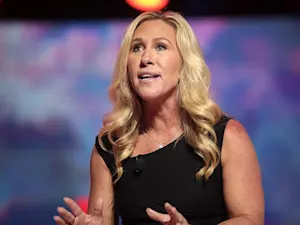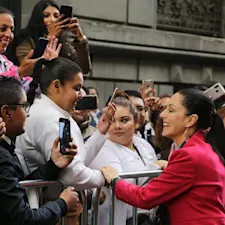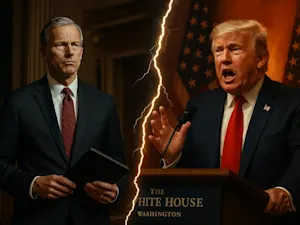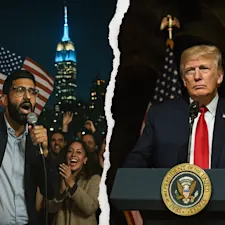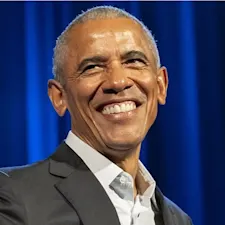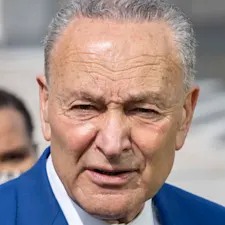
8 Democrats Just Shattered Their Party's Shutdown Standoff
The Democratic Party erupted in fury after eight Senate Democrats broke ranks to back a deal that ended the longest government shutdown in U.S. history without securing an extension of Affordable Care Act subsidies. The move has ignited a fierce backlash from progressives and party loyalists alike, exposing deep fractures within a caucus that once positioned itself as the champion of healthcare protections.
A Deal That Divides
The deal, clinched late on November 9, 2025, reopened the government after 40 days of closure but punted the critical issue of extending Affordable Care Act subsidies to a separate vote next month. Many Democrats and their base fear that this follow-up vote will fail, leaving millions facing skyrocketing healthcare costs. The shutdown had been framed by Democrats as a last stand to protect these subsidies, which are set to expire at the end of the year.
Instead, the agreement funded the government through January and promised a future vote on the subsidies, a move that critics say amounts to a "pathetic" surrender, as reported by Mediaite. The eight Democrats who voted for the deal argued that the shutdown was causing harm with no end in sight and that the blame for rising healthcare costs should fall on Republicans who oppose the subsidies. However, their decision has been met with sharp rebukes from within their own party.
Progressives Sound the Alarm
Progressive voices wasted no time condemning the deal. Representative Alexandria Ocasio-Cortez highlighted the stakes, pointing out that the average monthly SNAP benefit is $177 per person, while Affordable Care Act benefits can reach up to $550 per person per month. She argued that people want leaders who stand firm, not those who cave, emphasizing that this is about "people's lives" and the need for leaders "whose word means something," as reported by Mediaite.
Rep. Ro Khanna called for Senate Minority Leader Chuck Schumer's removal, accusing him of failing to lead the fight against soaring healthcare premiums. Khanna questioned what Schumer would fight for if he could not protect Americans from rising costs, as reported by The Hill.
Liberal activist groups echoed the outrage. Indivisible's co-founder Ezra Levin warned that the party cannot afford to be divided or weak while facing an "authoritarian" president, as reported by The Hill. Usamah Andrabi, a spokesperson for Justice Democrats, labeled the move an "absolute failure," accusing corporate Democrats of surrendering to the GOP and betraying working people.
Governors and Candidates Join the Chorus
The backlash extended beyond Congress. California Governor Gavin Newsom called the deal "pathetic," while Illinois Governor JB Pritzker described it as "an empty promise" that makes healthcare more expensive for the middle class and inaccessible for working families, as reported by Mediaite.
Democratic Senate candidates for 2026 also slammed the agreement. Texas hopeful Colin Allred called it a "joke," and Illinois Lieutenant Governor Juliana Stratton labeled it a "complete betrayal of the American people," as reported by POLITICO. Stefany Shaheen, running for a House seat in New Hampshire, publicly opposed the deal despite her mother, retiring Senator Jeanne Shaheen, being one of its lead negotiators.
The deal has become a litmus test for candidates in competitive races, with many using it to question Schumer's leadership. Graham Platner, running in Maine, said Schumer "failed in his job yet again" and called for new leaders who want to fight, as reported by POLITICO. Mallory McMorrow in Michigan and other candidates echoed the sentiment, criticizing the "old way of doing things" and the party's failure to leverage its position.
Leadership Under Fire
Senate Minority Leader Chuck Schumer faced intense criticism for his inability to keep the caucus united. Although he voted against the deal, he was blamed for allowing eight Democrats to side with Republicans, effectively undercutting the party's leverage. Rep. Ro Khanna's call for Schumer's replacement gained traction among progressives and some establishment figures alike.
House Minority Leader Hakeem Jeffries expressed disappointment with the deal and warned that the breakaway Democrats would "have to explain themselves" to the base, as reported by The Hill. He acknowledged that Congress might not act in time to prevent premium increases, signaling a tough road ahead for the party.
The Political Stakes
The timing of the deal added to the frustration. Democrats had just scored significant victories in off-year elections, which many interpreted as a mandate to fight harder against Trump and the GOP. Polls reportedly showed that Americans blamed Republicans more for the shutdown, and Trump's approval ratings had dipped further. Yet, the deal allowed Trump and Republicans to escape with little political cost, frustrating Democrats who had hoped to use the shutdown as leverage.
According to POLITICO, the eight Democrats who voted for the deal are not facing reelection soon, with two retiring and the rest holding terms that expire in 2028 or later. This has led to accusations that they were insulated from voter anger, while more vulnerable members of the caucus were left to bear the political fallout.
The Fallout Within the Party
The deal has exposed a party at a crossroads, torn between pragmatism and principle. Some Democrats argue that reopening the government swiftly was the least harmful option, while others see it as a betrayal of the party's core values and promises to voters.
Rep. Mike Quigley lamented that millions of Americans would soon face higher healthcare costs with nothing more than the hope that Republicans would act in the future. Rep. Laura Friedman echoed the frustration, vowing not to rubber-stamp what she called a "cruel" and "callous" Republican agenda, as reported by The Hill.
The deal has also energized progressive groups and candidates, with organizations like Run for Something reportedly seeing a surge in signups following the vote, according to POLITICO. The party's internal divisions have become a rallying point for those seeking new leadership and a more combative stance against Republicans.
What Comes Next?
The Democratic Party faces a test of unity and direction. The deal's promise of a future vote on Affordable Care Act subsidies offers little comfort to those who fear it will fail, leaving millions vulnerable to premium hikes.
The party's struggle to balance immediate relief with long-term policy goals has laid bare the challenges of governing in a deeply divided political landscape. For Democrats, the question remains whether they can reconcile their internal conflicts and present a united front in the face of ongoing Republican opposition.
The shutdown deal may have ended the immediate crisis, but it has opened a new chapter of discord and debate within the Democratic Party, one that will shape its future as it navigates the turbulent waters of American politics.
References: Democrats Rage at 'Pathetic' Shutdown 'Betrayal' En Masse | The Real Test for Democrats | Liberal fury over shutdown deal convulses Democrats | 'Complete betrayal': 2026 Democrats slam shutdown deal




